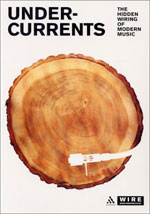Recent reading: music books

His enthusiasm for the music and musicians he mentions is all too apparent. This is the man who brought us Nick Drake, John Martyn, Fairport Convention and perhaps, less forgivably, The Incredible String Band. Earlier on, he toured who we now regard as some of the giants of jazz and blues, often just as they were being ‘rediscovered’; later he was at the forefront of world music promotion. Boyd was clearly never truly a hippy, despite running the UFO club, but his vivid memories of the times are enthralling, as Soft Machine, Tomorrow and Pink Floyd slip in and out of the story… along with Bob Dylan and the Newport Folk and Jazz Festivals, and a host of famous, dodgy and unknown characters. But it was Folk Rock that Boyd made his own territory, and that fills much of the book. Boyd shows some regrets about the Incredible Sting Band, and guilt about Nick Drake, but his observations about these and others, including Sandy Denny and the Fairports are enlightening, honest and interesting. He spills a certain amount of dirt but never lingers; it’s this coolness that has led to some negative reviews. Personally, I think it gives it a certain detachment and poise which is admirable and makes the book more definitive as a history, more than just a memoir.

Dick Weissman’s Which Side Are You On? An Inside
History of the Folk Music
Revival in America [Continuum] is the opposite. It’s an appallingly written
and researched, padded-out kind of book, full of self-important pronouncements
and shallow opinions and lists. Weissman may have been there, but he can’t
be bothered to check out his facts or names [Emmylou Harris is spelt Emmy Lou
throughout], and he has felt compelled to try and expand each chapter with half-baked
namechecks and round-ups of recent activity by the artists concerned and others
in that genre or field. I was really looking forward to this volume but it is
one of the worst music books I have had the misfortune to come across.
I’ve avoided buying Undercurrents: the Hidden Wiring of Modern Music [Continuum] because I have two boxes of Wire magazines
in the study, and had thought it only reprinted articles from them. Closer attention
would have meant I knew earlier than now that it included new pieces and substantially
rewritten and/or expanded versions too. So, years after it’s original 2002 publication
I finally get round to buying and reading this superb anthology!
Loosely grouped under the four themes of ‘Electrification’, ‘Occultism’, ‘Mechanism’ and ‘Freedom’ the 18 essays here take oblique looks at themes and issues at work in popular music, as well as specific characters within 20th century music. Harry Smith gets a section to himself, as do Neu! and Kraftwerk; musique concrete, sound poetry, the futurists and free jazz are all written about; so are sound sculptures and the idea of chance in music. But wider themes are also explored: the concept[s] of ritual, or ‘space ritual’; the idea of the record turntable as an instrument; also the origins of the phonograph, and how digital music has changed what we listen to and how music is made. It’s
a fascinating, complex, and demanding read, which at times annoys and contradicts,
befuddles and delights. Whatever your responses, it should be on your bookshelf,
as it finally is on mine.
© 2006 Rupert Loydell